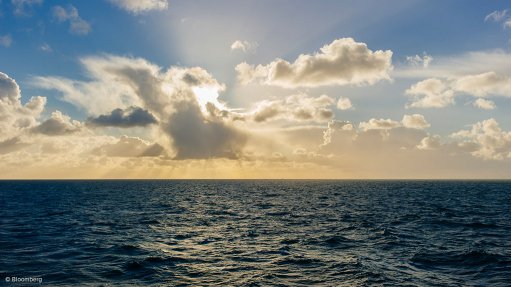
Photo by: Bloomberg
Environmental organisation Greenpeace International warns that the world’s oceans could face severe and irreversible harm from deep sea mining unless tighter environmental safeguards are put in place.
A new report published by the organisation, titled ‘In Deep Water’, shines a light on the emerging threat, revealing that deep sea mining could contribute to the extinction of unique marine species, while only 0.0001% of the deep seafloor has been explored or sampled by scientists.
In the report, Greenpeace calls on governments to agree on a strong United Nations Global Ocean Treaty that puts conservation and not exploitation at the heart of ocean governance.
“The health of oceans is closely linked to our own survival. Unless we act now to protect them, deep sea mining could have devastating consequences for marine life and humankind,” says Greenpeace ocean protection campaign member Louisa Casson.
The report also explains how deep sea mining could make the climate emergency worse by disrupting “blue carbon” stores in seafloor sediments.
“The deep sea locks away carbon that is absorbed from the atmosphere and helps limit and slow climate breakdown,” Greenpeace Africa senior climate and energy campaign manager Melita Steele points out.
So far, 29 exploration deep sea mining licences have been granted by countries including China, Korea, the UK, France, Germany and Russia, which have “laid claim” to vast areas of the Pacific, Atlantic and Indian Oceans, covering an area of around one-million square kilometres.
“It is critical that governments agree on a UN treaty strong enough to pave the way for the creation of a network of ocean sanctuaries that will be off limits to all forms of industrial exploitation, including deep sea mining.
“It also needs to enforce much higher environmental standards for any such activity outside of these sanctuaries,” says Casson.